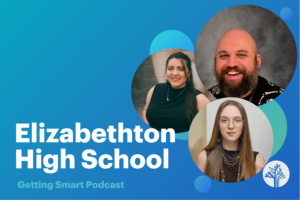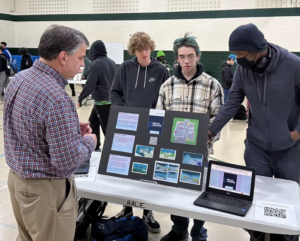Sir John Daniel: Openness Rather Than Scale is MOOC Contribution

“I’m delighted that openness has gotten to some very closed institutions,” said Sir John Daniel. As the former CEO of Commonwealth of Learning and Vice-Chancellor of Open University, he knows a lot about higher education, open education resources (OER), and online learning.
Sir John’s recent paper, ” Making Sense of MOOCs: Musings in a Maze of Myth, Paradox and Possibility ,” evaluates the impact and value of MOOCs (Massive Open Online Courses). He concludes that it is not their scale that is the real revolution in higher education, but rather that universities with scarcity at the heart of their business models are embracing openness.
Sir John referenced our recent World Education University story (about free college courses). He wondered, “Is accreditation on the way out?” He suggested that as more people earn credits from MOOCs and competency-based strategies, the less relevant traditional accreditation will become.
But will MOOCs improve the quality of higher ed? Sir John thinks so. “The more people jump in the and the bigger it comes the more it becomes a pedagogy that institutions have to decide if they’re going to get into this for real. It will cause the field will cause higher ed to think about what students learn.” He noted that it “won’t be long until all kinds of people begin making assessments of courses”, and learning that results from courses people will have to decide what they mean by quality.
Sir John sees MOOC as a confirmation and expansion of the early insight at Open University. He appreciates that universities are sharing their content at no charge. But on the narrower issue of IP he acknowledges that the “there’s probably been some messy copyright issues” because, as noted by the Stanford Daily, MOOCs aren’t really open. Universities like Stanford “allows the company to deliver the course but not to own it.”
While the paper says that “MOOCs will not do is address the challenge of expanding higher education in the developing world,” Sir John is bullish on the expansion of high quality open content but he’d like to see it deployed locally with academic support systems (like edX and MassBay Community Colleges blended MOOCs and supports).
Sir John isn’t worried about low completion rates, at least not yet, “The time to start making judgements is about six months down the road.” In the meantime, there’s a lot of faith-based investing and bandwagon hopping going on.
This blog first appeared on EdWeek.








0 Comments
Leave a Comment
Your email address will not be published. All fields are required.